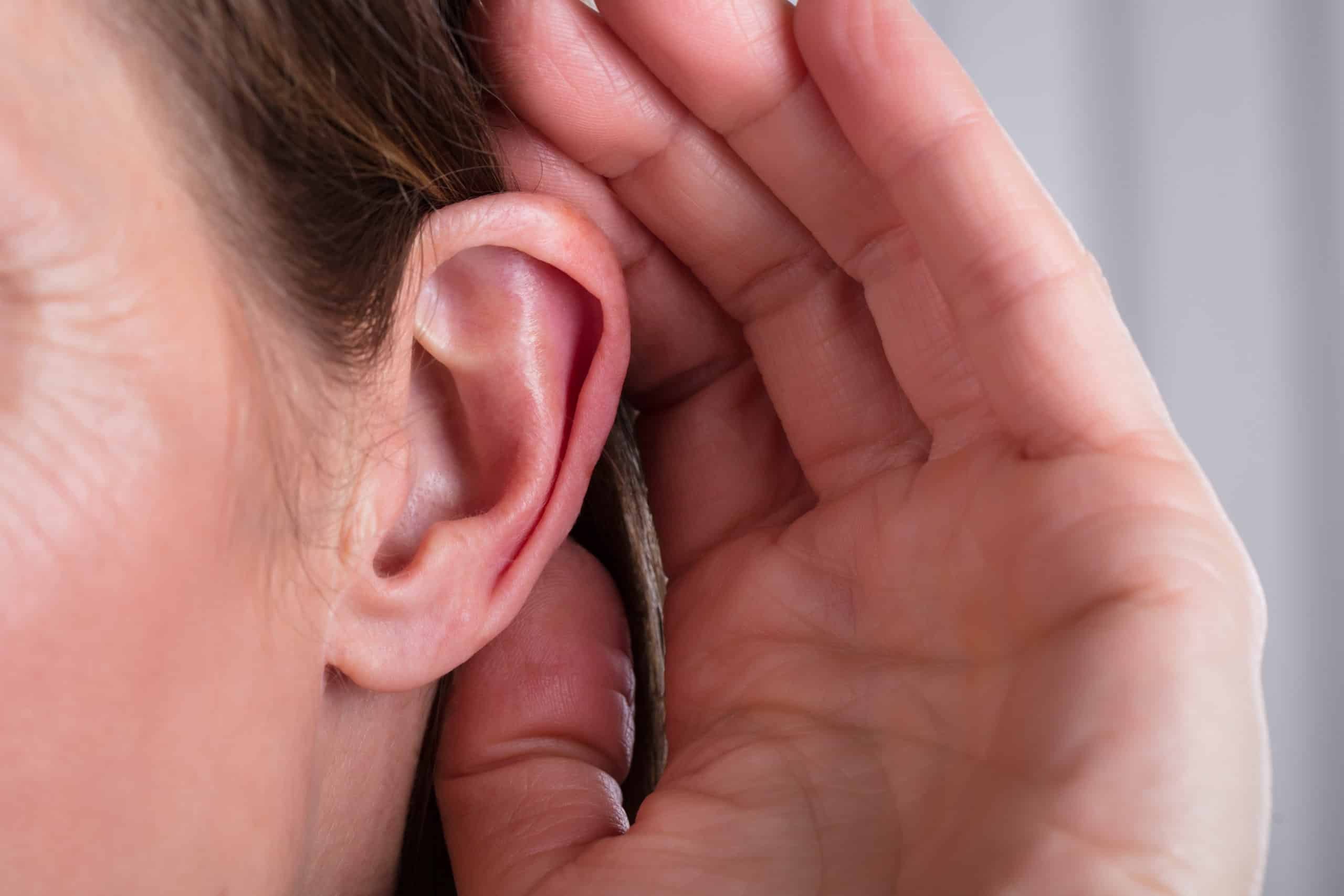Risk-free 30 Day Trial: Limited availability every month!

Contrary to what you may think, hearing loss can be caused by several different conditions, including age-related hearing decline, certain diseases or ear conditions, and injury. Hearing loss can be due to fluid buildup, damaged ear organs, malformation of ear tissues, infection, etc. Conductive hearing loss is one type of hearing loss that can affect people of any age, and can be caused due to any of the previously mentioned factors, as well as others.
What is Conductive Hearing Loss?
Conductive hearing loss is when sound does not travel correctly through the outer and middle ear. Sound waves have to travel through the outer ear (the ear canal), be passed along the bones of the middle ear, before reaching the cochlea and semicircular canals, which translate the pressure waves into electrical signals the brain interprets as sound.
This complex process can have many types of holes in it, sometimes literal ones. Conductive hearing loss is one of these holes, leading to hearing loss that can feel like normal sounds are muffled, and some may be non-distinct.
Conductive Hearing Loss Symptoms
Sometimes conductive hearing loss can develop gradually, making subtle symptoms that may be hard to catch on their own. Symptoms you may have conductive hearing loss include:
- Muffled noises
- Being unable to hear soft sounds
- Dizziness
- Gradual loss of hearing
- Pain
- Drainage
- A feeling of fullness
Causes of Conducting Hearing Loss
A person can develop hearing loss for anything from having excess ear wax to a benign tumor. Other causes of conductive hearing loss are:
- Ear infection
- Hole in the eardrum
- Excess earwax buildup
- Benign tumor
- Object obstructing the outer ear
- Fluid buildup
The good news is that nearly no matter what the cause, doctors can typically reverse the hearing loss. Treatments for conductive hearing loss can range from removing a foreign object to surgery. In some cases, they may recommend a special hearing aid depending on the results of their tests.
Hearing Loss Testing for Conductive Hearing Loss
There are several tests doctors perform to diagnose conductive hearing loss, including physical examinations, electrical tests, and hearing tests to determine what may be causing the issue. Physical examinations detect issues such as earwax buildup or other blockages of the ear canal. Hearing tests like a Weber hearing test can detect the degree of hearing loss in each ear. And an audiogram may be generated to look for specific indications of certain causes. Taken together, these tests lead to a confident diagnosis to help you get back to living your hearing life.
Hearing Loss Solutions in Georgia
In rare cases, conductive hearing loss may not be able to be cured, or a person may opt not to undergo surgery for personal or medical reasons. In these cases, a hearing aid in Georgia can help you by providing the exact amount of hearing help you need while being low-profile according to your goals and desires. Hearing aid technology has advanced quickly in recent years, with the development of high-tech hearing aids powered by AI to give you the most realistic, adjustable hearing solution at the touch of a button. Call us or visit one of our convenient locations today to find out how we can help your lifestyle back. Our offices are available to help patients near Athens, Whitehall, Auraria, and more cities throughout Georgia.


 (706) 525-5463
(706) 525-5463